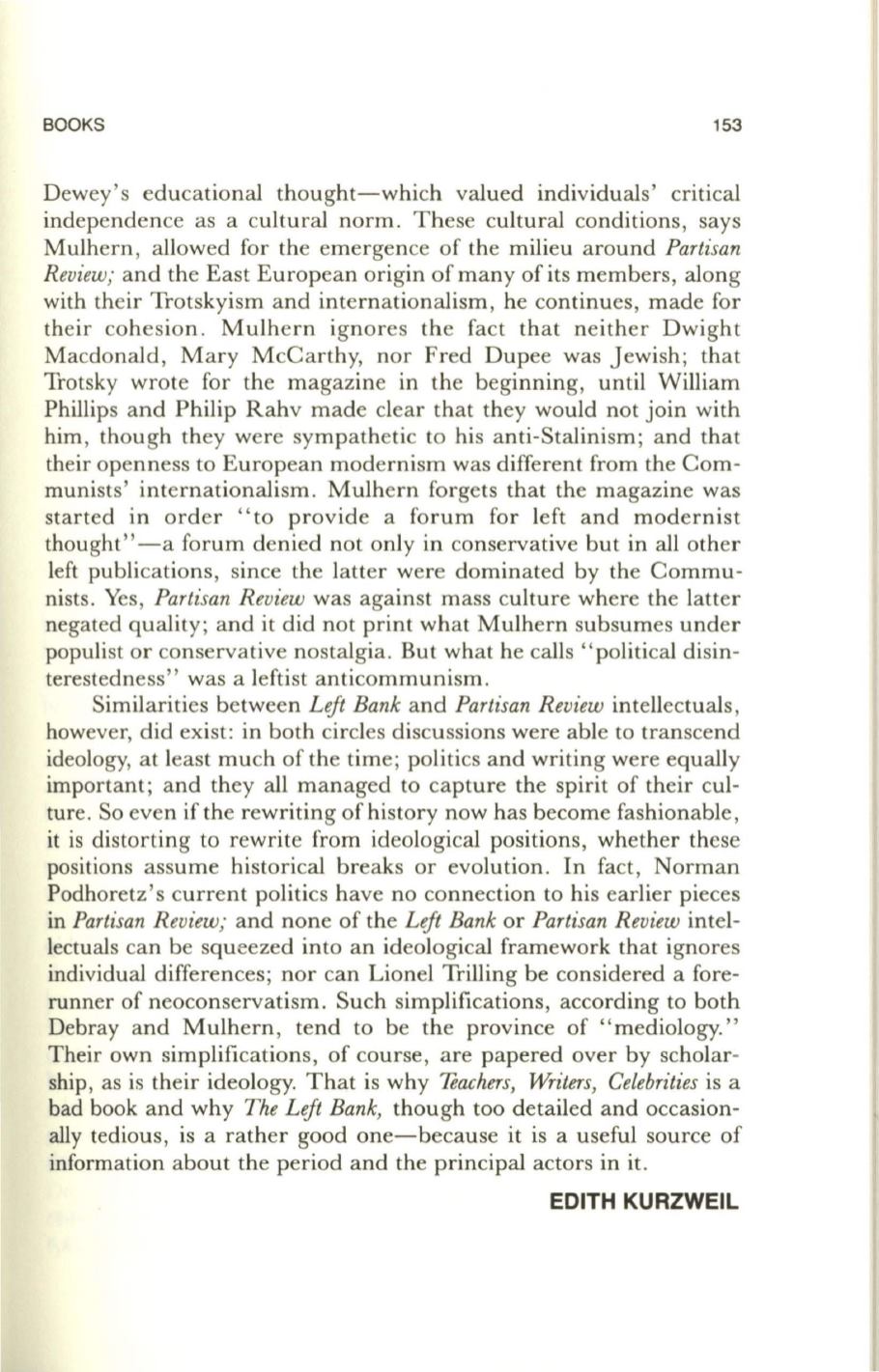
BOOKS
153
Dewey's educational thought-which valued individuals' critical
independence as a cultural norm. These cultural conditions, says
Mulhern , allowed for the emergence of the milieu around
Partisan
Review;
and the East European origin of many of its members, along
with their Trotskyism and internationalism, he continues, made for
their cohesion. Mulhern ignores the fact that neither Dwight
Macdonald , Mary McCarthy, nor Fred Dupee was Jewish; that
Trotsky wrote for the magazine in the beginning, until William
Phillips and Philip Rahv made clear that they would not join with
him , though they were sympathetic to his anti-Stalinism; and that
their openness to European modernism was different from the Com–
munists ' internationalism . Mulhern forgets that the magazine was
started in order "to provide a forum for left and modernist
thought " -a forum denied not only in conservative but in all other
left publications, since the latter were dominated by the Commu–
nists. Yes,
Partisan R eview
was against mass culture where the latter
negated quality; and it did not print what Mulhern subsumes under
populist or conservative nostalgia. But what he calls "political disin–
terestedness" was a leftist anticommunism.
Similarities between
Left Bank
and
Partisan Review
intellectuals ,
however, did exist: in both circles discussions were able to transcend
ideology, at least much of the time ; politics and writing were equally
important; and they all managed to capture the spirit of their cul–
ture. So even if the rewriting of history now has become fashionable,
it is distorting to rewrite from ideological positions, whether these
positions assume historical breaks or evolution .
In
fact , Norman
Podhoretz 's current politics have no connection to his earlier pieces
in
Partisan Review;
and none of the
Left Bank
or
Partisan Review
intel–
lectuals can be squeezed into an ideological framework that ignores
individual differences ; nor can Lionel Trilling be considered a fore–
runner of neoconservatism. Such simplifications, according to both
Debray and Mulhern , tend to be the province of "mediology."
Their own simplifications, of course, are papered over by scholar–
ship, as is their ideology. That is why
Teachers, Writers, Celebrities
is a
bad book and why
The Left Bank,
though too detailed and occasion–
ally
tedious , is a rather good one-because it is a useful source of
information about the period and the principal actors in it.
EDITH KURZWEIL


